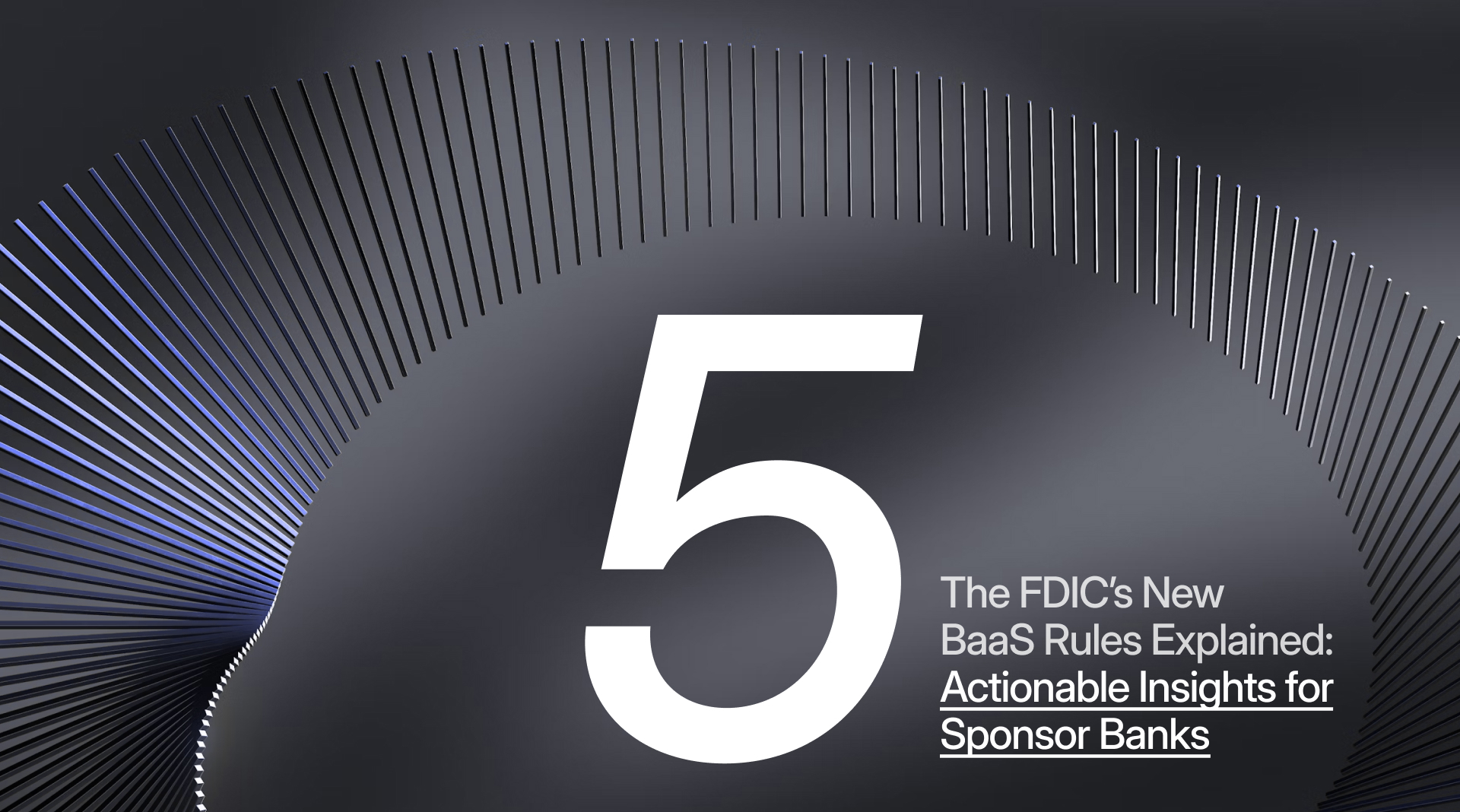
The FDIC push that’s driving banks to bring BaaS home

The rise of Banking as a Service (BaaS) has transformed how sponsor banks provide financial services. Many traditional banks collaborate with fintechs, offering new ways to drive growth through participation in embedded finance. However, with these exciting opportunities also come big risks. This is especially true when outsourcing important tasks like deposit management and reconciliation to third-party providers or BaaS platforms.
The Federal Deposit Insurance Corporation (FDIC) has introduced new rules for Insured Depository Institutions (IDIs). This is in response to the recent collapse of Synapse - a prominent third party that was the intermediary between banks and fintechs. The new rules aim to improve accountability and stability in the BaaS ecosystem.
To help sponsor banks navigate these changes, here are 5 critical insights drawn from the FDIC’s updated regulations.
Detailed recordkeeping is now a regulatory priority
Sponsor banks must now keep careful records of all custodial deposits. This includes detailed information about the beneficial owners of those funds. If a third party fails, banks can quickly find out who owns the funds in bank account of the FBO (For the Benefit Of) accounts. This process is accurate and efficient.
Why it matters: When a third-party platform fails, clear and accurate records help your bank quickly find the right owners for the funds. This prevents confusion, avoids operational chaos, and helps maintain the trust of your customers by providing transparency.
Responsibility for accurate deposit accounting
The new FDIC rules place the ultimate responsibility for accurate deposit balances on the sponsor banks.
For banks with in-house ledger systems, this is more manageable with proper accounting practices. For those who depend on third parties, daily reconciliations are now required by the rule. This helps ensure compliance and maintain data integrity.
Why it matters: Outsourcing operations doesn’t mean outsourcing responsibility. When banks keep a tight grip on their accounting, they maintain deposit accuracy. This way, they avoid costly compliance breaches and operational disruptions, which could otherwise lead to fines or damaged reputations.
Independent audits and certifications build trust
The FDIC now requires banks to do independent audits of their processes. This is especially important if they use third parties for recordkeeping. Additionally, banks must provide annual certifications from senior executives, confirming compliance with the new rules.
When banks handle reporting internally, they can automate much of it. This gives auditors a clear picture of transactional data on the custodial and beneficial owner accounts.
Why it matters: Independent audits and executive certifications are important checks to ensure compliance. They provide a clear way to find and fix potential issues before they turn into costly problems.
Strategic shift to in-house technology solutions
In response to the FDIC’s rules, many sponsor banks are moving away from relying on third parties. They are bringing important accounting and ledger technology in-house. By managing their reconciliation and accounting systems, banks can now perform real-time checks. They no longer have to wait for updates from third parties.
Why it matters: Having in-house control over technology means fewer bottlenecks, faster decision-making, and stronger operational resilience. It also provides a safeguard against potential third-party failures - enhancing both stability and compliance.
Turn compliance into a revenue generator
While these new rules might seem like added pressure, they also open new opportunities. By owning their tech stack, sponsor banks can monetize their internal systems. Offering APIs directly to fintech partners allows for deeper integration, stronger partnerships, and additional revenue streams.
Why it matters: This opportunity has two parts. In-house systems help you stay compliant and efficient. They also provide a platform for growth. Fintechs get seamless integration, while banks retain full control and profit from offering premium API services.
These 5 insights give sponsor banks a clear way to move forward. First, reduce reliance on third parties for accounting and recordkeeping. Next, strengthen your internal controls. Finally, take charge of your fintech partnerships.
Learn more about how Finzly's virtual ledger offering can help you easily manage compliance to FDIC rules while maximizing growth through fintech partnerships.
